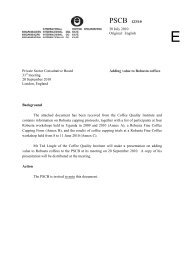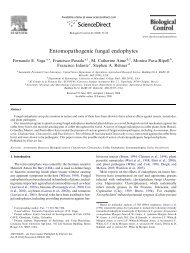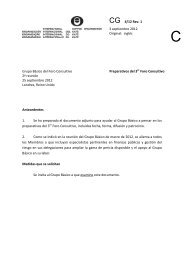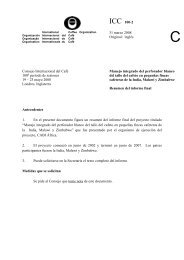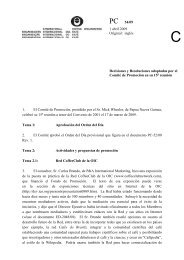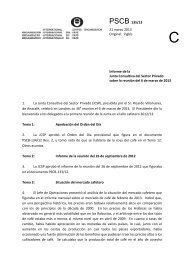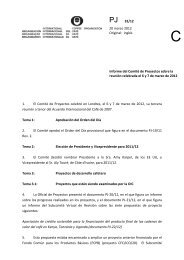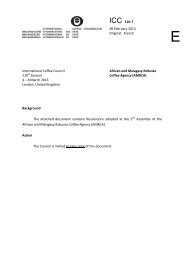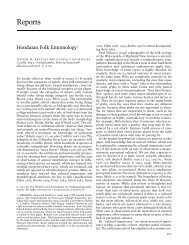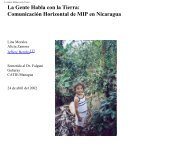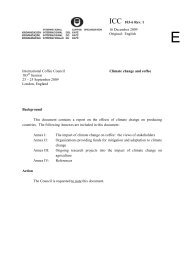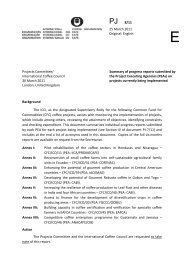Devouring profit - International Coffee Organization
Devouring profit - International Coffee Organization
Devouring profit - International Coffee Organization
You also want an ePaper? Increase the reach of your titles
YUMPU automatically turns print PDFs into web optimized ePapers that Google loves.
The average farmer had 23 years farming experience (modal value 30), 87.5% of them<br />
were more than 35 years old, with an average age of 46 (range 17 to 81). 72.8% of<br />
them did not complete primary school education - in Colombia is has been estimated<br />
that coffee farmers average only 3.6 years of formal education. This level of education<br />
is not adequate for adopting a technology such as IPM whose essence is as much<br />
conceptual as practical. Metcalf (1974) for instance, comments that the rate of acceptance<br />
of an innovation depends on the educational status of the farmers.<br />
The average size of a family was 5, with few having more than 6 members. From this<br />
we conclude that family labour is no longer abundant as many had supposed and this<br />
must impact on their ability to adopt labour intensive control methods.<br />
Income generation: most coffee farmers surveyed (76%) did not have additional offfarm<br />
activities to generate extra income generation and/or risk through income diversification.<br />
Land tenure: most were owner-occupiers with clear property rights to their land. In<br />
this case land plays a key role as collateral, facilitating access to rural credit.<br />
Rural wages: Colombian rural wages vary depending on the region and time of year.<br />
In S. Colombia where labour is normally abundant, rural wages tend to be lower than<br />
in the central coffee regions where the most intensively farmed coffee in Colombia is<br />
situated.<br />
In the case of short-term workers a normal wage in the central zone is about $13,000<br />
to $14,000 Colombian pesos per day (US$5.9 to 6.4, 2002). This wage is normally<br />
paid for unspecialised activities such as weeding, shade regulation, pruning, fertilisation,<br />
etc., including some coffee collections when carrying out cultural control for CBB<br />
management. For other activities such as main harvest periods, wages tend to rise<br />
because payment is by weight of berries collected. Under this scheme good workers<br />
could increase significantly their income, up to US$10 per day.<br />
Other types of labour involving specialised activities such as spraying, post-harvest<br />
processing and so on is normally done by permanent workers where the wages are<br />
higher because some social security payments are included.<br />
Thus from our surveys, it seems that Colombia pays some of the world’s highest<br />
wages for coffee. This explains why coffee growers there are always particularly sensitive<br />
to agricultural recommendations that involve extra labour as in the case of CBB<br />
control.<br />
95



